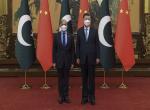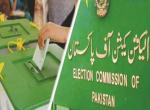The dramatic killing of Salman Taseer, the Governor of Pakistan’s Punjab province, epitomizes all that is steadily going wrong with the country- large scale sectarian terrorism causing domestic mayhem, growing religious fanaticism within society, extremist encroachment into the security apparatus, reduced political and social space for liberal thinking, toxic connections between mainstream political parties and the mullahs, failing democracy. More and more Pakistan appears headed towards a form of state failure.
Regressive forces in Pakistan have become so powerful and pervasive that the political class has not found the courage to roundly condemn this despicable murder, former Prime Minister Nawaz Sharif has equated the fundamentalists and liberals in Pakistan by calling on both to be “moderate”, Taseer’s own party has equivocated, the clerics refused to lead the prayers at his funeral, sections of the media seem to have countenanced the crime, thousands on the internet have lauded the murderer for his act, and the beatific hymn-singing assassin is being projected as a hero.
It should be a matter of grave concern that one of the largest Muslim countries in the world, equipped with nuclear weapons, is being corroded with such pernicious religious zealotry.
For long the international community has ignored the extremist threat from Pakistan, make-believing that the well-organized Pakistani military would keep things under control. General Musharraf constantly underplayed this threat when strutting the international stage and lecturing his audiences on their guilt in pushing the Islamic world into violence as the only way to redress Muslim persecution world wide, including in Kashmir. His beguiling theories about “enlightened moderation” were lapped up. Pakistan was supposed to evolve into a moderate Islamic state, joining the West in combatting religious extremism, as it revived democracy at home.
In reality, it is Pakistan’s military leadership that has nurtured extremist groups within the country for external strategic reasons associated with India and Afghanistan, as well as for domestic politicking when directly ruling the country. The military’s stranglehold on internal politics and its regional strategic ambitions are interconnected, feeding domestic and regional instabilities. Yet, it is this military that continues to receive international support.
China, Pakistan’s all weather friend, continues to bolster the latter’s military capacity to counter India. The US, to obtain coooperation for disentangling itself from the Afghan mess, also supplies arms to Pakistan and overlooks its duplicitous conduct in selectively acting against the Islamic radical groups, backing those that kill US/Nato soldiers and battling those that kill Pakistani troops. The US continues to rely on the bankrupt strategy of pleading with Pakistan to cooperate in exchange for arms and economic aid as well as a long term strategic partnership as incentives.
General Musharraf, much feted when he was in power, left Pakistan in worse shape on departure. General Kayani, hailed as an exceptional professional when he took over, is, after almost one score meetings with Admiral Mullen, the Chairman of the US Joints Chief of Staff, now considered an unyielding thorn in the flesh of US strategy in handling the insurgency across the Afghanistan-Pakistan border. The US press is told by well-informed sources that neither pressure nor incentives will work with a hardplaying, unrelenting General Kayani, the most anti-Indian Pakistani Army Chief so far.
What lessons should India draw from Salman Taseer’s assassination in terms of the challenges that an increasingly radicalized Pakistan presents to us? Principally, we should not let wishful thinking and naive recipes for improving ties with Pakistan take the better of reality and sound judgment. Any hope that Pakistan will genuinely try to bring to justice the authors of the Mumbai terrorist attack have further receded after Governor Taseer’s assassination and the dramatic exposure it has provided of the depth of extremist thinking in Pakistan.
Can we really expect Pakistan to act against Punjab based jihadi groups, the LeT, the Jamaat-ud-Dawa etc? The instability of the PPP led government, the linkages that PML(NS), and more particularly the government of Punjab, has with extremist groups, do not hold out hope that Pakistan will begin “dismantling the infrastructure of terrorism” on its soil.
If Pakistan is not going to act on the Mumbai front, and prospects of Pakistan suppressing jihadi groups are unreal, and if we say that dialogue cannot succeed in achieving its objectives under threat of terrorism, then why are we pressing for resumption of talks with Pakistan? We are repeatedly expressing our interest in receiving Foreign Minister Qureshi in New Delhi, even though he has said publicly that he will come only if Kashmir is discussed. Does this mean that we are now ready to discuss Kashmir with him? What will be the aim of this discussion as Pakistan has reverted to its traditional position of demanding self-determination in Kashmir in accordance with UN resolutions, and when its political class is brain washed into believing the worst about Indian atrocities there? We must not waffle over our position that Kashmir, as that encourages both the separatists there and the Pakistanis to look for concessions.
Why do we want to appear more anxious than Pakistan to resume the dialogue? Why does Qureshi not feel the need to say that he is looking forward to visit New Delhi to carry the dialogue process forward? Why should the information that he intends coming in the first quarter of this year come from us, and not, as is appropriate, from the Pakistani side? We put ourselves at a disadvantage by appearing to be more anxious than the other side to resume the dialogue, as then the burden of ensuring that the talks are successful falls more on us. In any case, what do we want to offer to Pakistan that will satisfy it? If Pakistan is willing to normalize relations with India without making territorial demands and giving up recourse to terrorism to coerce us into yielding to them, then by all means we should reciprocate unreservedly.
We should we clear in our mind that we are not responsible for Pakistan’s unremitting slide towards extremism and failure. It is the result of choices Pakistan has made. Undoubtedly a stable and prosperous Pakistan is in our interest, but not if Pakistan remains hostile and uses its resources to continue threatening us. It would be extraordinary naive to believe, as some in India do, that we can devise a strategy to stabilize and save Pakistan, or help it strengthen its democracy and make its generals subservient to civilian rule. How? It is pious verbiage to say that we are both the products of a common cultural, spiritual and civilizational heritage. Why was Pakistan created then?
Let us stop giving Pakistan alibis for its reprehensible conduct. It is not US military occupation of Afghnistan that explains the rise of Islamism in Pakistan. The Taliban were Pakistan’s creation. Arguments that the unresolved Kashmir issue gives oxygen to religious extremism in Pakistan and therefore we must find an early solution is a dangerous mis-reading of history. Pakistan itself was a product of Islamic passion; terrorism came to Kashmir only from about 1980.
Let us not propose that for curing the cancer of extremism that has entered the lymph nodes of Pakistan, it is India that must undergo surgery.








Post new comment